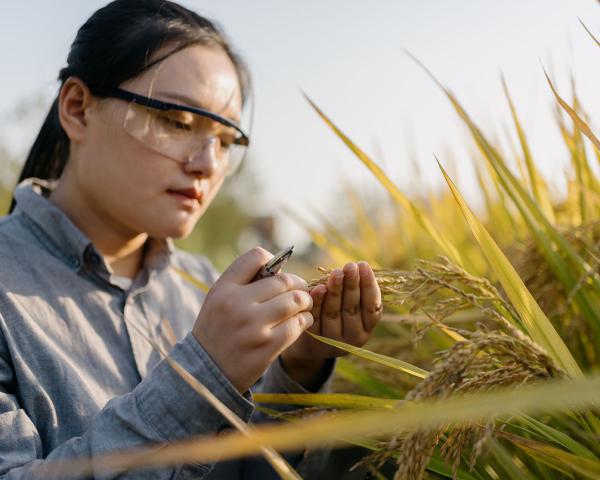New Environmental Science A.S. Degree
Preparing Students for Work or Transfer
The field of Environmental Science arose as a multidisciplinary approach to studying the effects of human activities on the planet and to solve environmental problems. This requires developing a foundation of understanding in biological, chemical, physical and social processes.
The new Environmental Science A.S. degree at Minneapolis provides students a strong foundation in environmental science through coursework rooted in the physical, analytical and social sciences. Students will be able to relate these principles and the results of hypothesis-driven field and lab experiments to the natural environment. After completing the degree, graduates will be prepared to transfer to a college or university to earn a B.S. in an environmentally focused major.
“The new program officially started last spring and current students are preparing to complete their first year of coursework,” said Nicholas Deacon, biology faculty and one of the creators of the new degree program. “The Environmental Science A.S. degree is designed to be completed in four semesters with a total of 60 credits and classes are currently offered online or via a blended/hybrid format.” Some classes with a laboratory component, for example, may have the lab meet in-person while lectures are held online. Courses like Ecology that incorporate a significant field-based research component will offer hybrid models to ensure interactive learning opportunities.
While many students who are interested in pursuing a four-year degree in Biology hope to enter healthcare fields, there was a history of students requesting a major with a more explicit environmental focus. Since many classes at Minneapolis College already approach subjects through an environmental lens, the new degree program did not require any new course creation, rather the College combined existing classes into this new major to meet degree requirements.
“Our program supports students through our faculty’s expertise in relevant coursework and in our close connection with our transfer partners,” said Deacon. “This degree program was deliberately established with transfer agreements as we’re expecting most students will transfer to a four-year institution.” Minneapolis College established transfer agreements with Metropolitan State University to their Environmental Science B.S. degree and Bemidji State University to their Environmental Studies B.S. degree. Transfer to other types of natural science degree programs like ecology, wildlife biology or conservation biology are also possibilities for students who complete the program.
While there are possibilities for employment at a technician level in some companies with only the A.S. degree, a majority of students are looking for careers following a four-year degree in areas including natural resource management or policy and nonprofit work.
